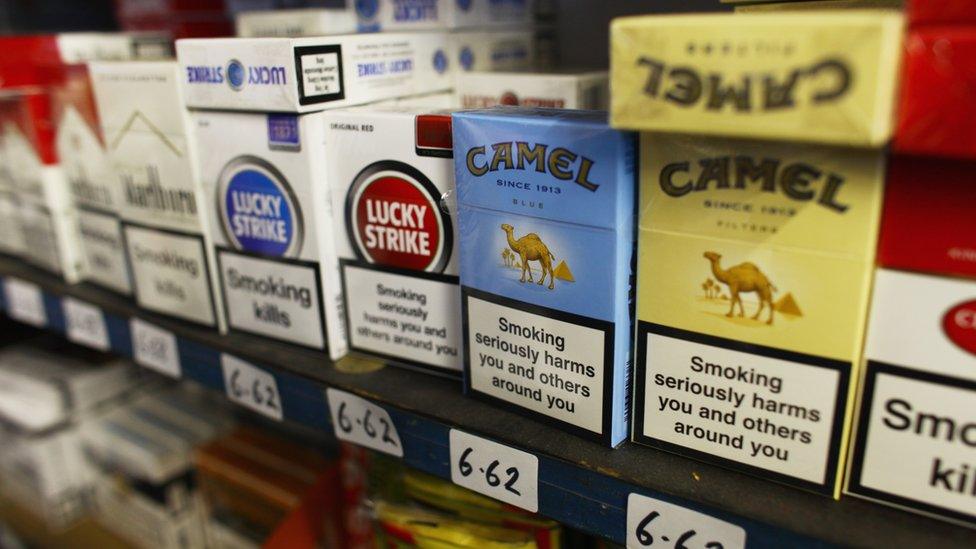EU upholds tough rules on tobacco packaging
- Published
- comments

Rules that will drastically alter cigarette packaging are set to be adopted, after big tobacco firms failed to block new European Union laws.
Europe's highest court upheld a law that will standardise packaging and ban the advertising of e-cigarettes.
The Court of Justice found the laws "did not go beyond the limits of what is appropriate and necessary".
Under the new rules health warnings will have to cover 65% of the front and back of cigarette packaging.
The rules are due to take effect from 20 May, but the new packets will not be on sale until stocks of existing cartons have been cleared over the next year.
'Disproportionate'
Philip Morris International and British American Tobacco (BAT) challenged the proposed legislation.
They argued that the European Union was overstepping its authority to direct laws in member states.
Reacting to the court's findings a BAT spokesperson said: "We stand by our belief that the Tobacco Products Directive is a clear example of the EU overstepping the limits of its authority. The reality is that many elements of the directive are disproportionate, distort competition, and fail to respect the autonomy of the Member States."

Individual EU states are also working on new packaging rules.
In the UK, the government wants to introduce tobacco packs with plain packaging - a move which is also being challenged by big tobacco companies.
The law was supposed to come into effect later this month, but that could be delayed as on 18 May the High Court is due to rule on the legal challenge to the legislation from the tobacco industry.
Local battles
"What is clear from the [EU] directive and the judgment is that measures that go beyond the requirements of the directive, such as plain packaging, must still comply with the wider principles of EU and international law." said the BAT spokesperson.
"Whether plain packaging meets these requirements is currently the subject of ongoing litigation before the English Courts and the WTO [World Trade Organization].
It is likely that the losing party would launch an appeal over the High Court's decision.
- Published4 January 2016
